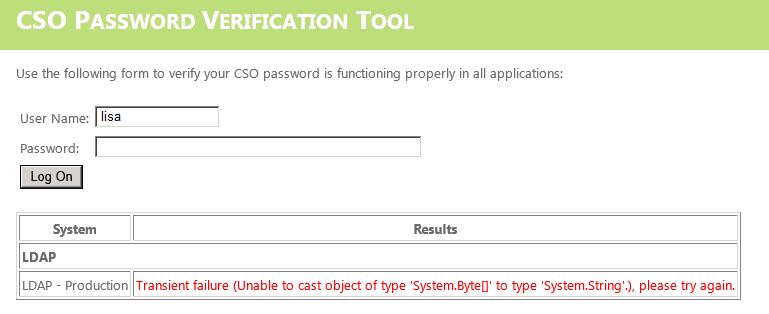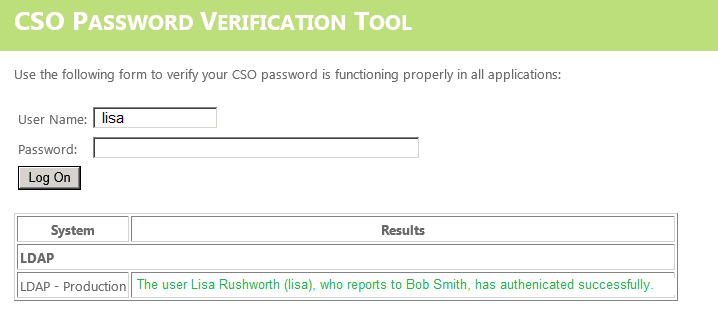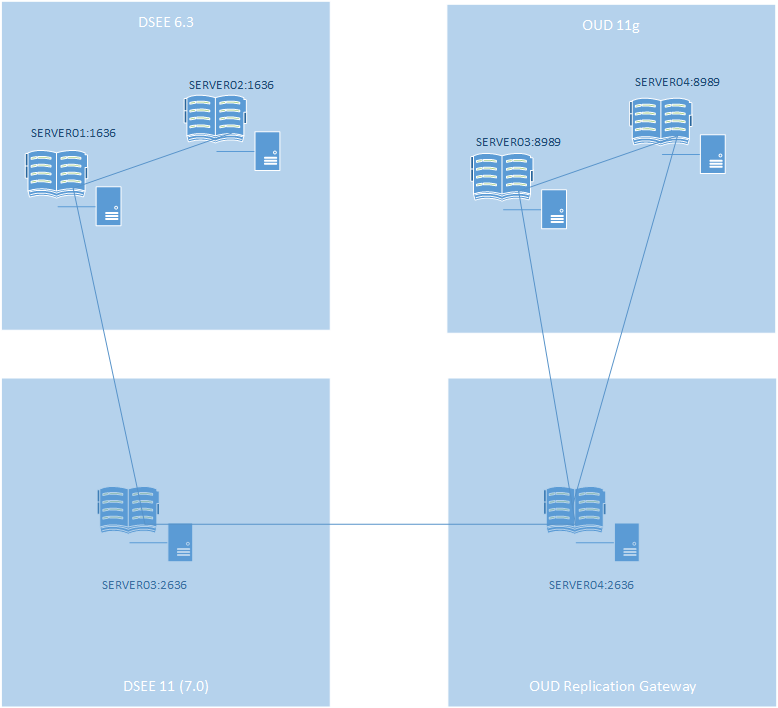# PRE-CHANGE VERIFICATION
# There are two environment variables set to allow this to work:
# WLSTOREPASS=Wh@t3v3rY0uU53d # WLSTOREPASS is set to whatever is used for the keystore and truststore password
# OUDINST=/path/to/OUD/installation (root into which both java and OUD were installed — if you are using an OS package
# for java, your paths will be different)
# Log into OUD web management GUI (https://hostname.domain.gTLD:7002/odsm) and verify for each server:
# Configuration=>General Configuration=>Connection Handlers=>LDAPS Connection handler: “Secure access properties” section, Key Manager Provider & Trust Manager Provider are JKS. Certificate name is short hostname
# Configuration=>General Configuration=>Kery Managers=>JKS: Path is /$OUDINST/Oracle/Middleware/<short hostname>.jks
# During Change, server can be online
# Use the web GUI to issue certificates from WIN-WEB-CA. Export each cert as a PFX with keystore password $WLSTOREPASS
# On each server, place the approprate PFX file named with the hostname (i.e. the cert for LDAPFrontEndAlias.domain.gTLD will be stored to HOST1 as host1.pfx but stored on HOST2 as host2.pfx) in /tmp/ssl
# Alternatively, issue one certificate with each hostname and the front end alias as SAN values and use a static filename for the PFX file
# Put the root & web CA base-64 public key in /tmp/ssl/ as well (named Win-Root-CA.b64.cer and Win-Web-CA.b64.cer)
### Import the chain for the private key certificate
$OUDINST/java/jdk/bin/keytool -import -v -trustcacerts -alias WIN-ROOT -file /tmp/ssl/Win-Root-CA.b64.cer -keystore /tmp/ssl/${HOSTNAME%%.*}.jks -keypass $WLSTOREPASS -storepass $WLSTOREPASS
$OUDINST/java/jdk/bin/keytool -import -v -trustcacerts -alias WIN-WEB -file /tmp/ssl/Win-Web-CA.b64.cer -keystore /tmp/ssl/${HOSTNAME%%.*}.jks -keypass $WLSTOREPASS -storepass $WLSTOREPASS
# get GUID for the private key in the PFX file
HOSTCERTALIAS=”$($OUDINST/java/jdk/bin/keytool -v -list -storetype pkcs12 -keystore /tmp/ssl/${HOSTNAME%%.*}.pfx –storepass $WLSTOREPASS | grep Alias | cut -d: -f2-)”
# Change the cert alias to be the short hostname
$OUDINST/java/jdk/bin/keytool -importkeystore -srckeystore /tmp/ssl/${HOSTNAME%%.*}.pfx -destkeystore /tmp/ssl/${HOSTNAME%%.*}.jks -srcstoretype pkcs12 -deststoretype JKS -alias $HOSTCERTALIAS -storepass $WLSTOREPASS -srcstorepass $WLSTOREPASS
$OUDINST/java/jdk/bin/keytool -changealias -alias $HOSTCERTALIAS -destalias ${HOSTNAME%%.*} -keypass $WLSTOREPASS -keystore /tmp/ssl/${HOSTNAME%%.*}.jks -storepass $WLSTOREPASS
# Verify you have a WIN-ROOT, WIN-WEB, and hostname record
$OUDINST/java/jdk/bin/keytool -v -list -keystore /tmp/ssl/${HOSTNAME%%.*}.jks –storepass $WLSTOREPASS | grep Alias
# STOP THE LDAP SERVER AT THIS POINT
# Back up the current Java keystore file and move the new one into place
CURRENTDATE=”$(date +%Y%m%d)”
mv $OUDINST/Oracle/Middleware/${HOSTNAME%%.*}.jks $OUDINST/Oracle/Middleware/$CURRENTDATE.jks
cp $OUDINST/Oracle/Middleware/asinst_1/OUD/config/truststore $OUDINST/Oracle/Middleware/asinst_1/OUD/config/truststore-$CURRENTDATE
$OUDINST/java/jdk/bin/keytool -import -v -trustcacerts -alias WIN-ROOT -file /tmp/ssl/Win-Root-CA.b64.cer -keystore $OUDINST/Oracle/Middleware/asinst_1/OUD/config/truststore -keypass $WLSTOREPASS -storepass $WLSTOREPASS
$OUDINST/java/jdk/bin/keytool -import -v -trustcacerts -alias WIN-WEB -file /tmp/ssl/Win-Web-CA.b64.cer -keystore $OUDINST/Oracle/Middleware/asinst_1/OUD/config/truststore -keypass $WLSTOREPASS -storepass $WLSTOREPASS
mv /tmp/ssl/${HOSTNAME%%.*}.jks $OUDINST/Oracle/Middleware/${HOSTNAME%%.*}.jks
# START THE LDAP SERVER AND check for errors / test
# Backout:
# Stop the LDAP server
# mv $OUDINST/Oracle/Middleware/$CURRENTDATE.jks $OUDINST/Oracle/Middleware/${HOSTNAME%%.*}.jks
# mv $OUDINST/Oracle/Middleware/${HOSTNAME%%.*}.jks /tmp/ssl/${HOSTNAME%%.*}.jks
# Start the LDAP server


